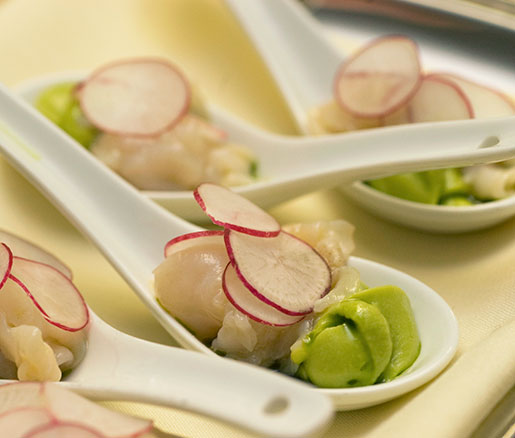
WHAT? "These are the most bizarre-looking of all clams (and perhaps all foods)," James Peterson writes in Fish & Shellfish of the geoduck, which makes its home in the Pacific Northwest. Waverly Root wasn't much kinder, describing it as a "clam so fat that it cannot close its shell." The bigger specimens of the world's largest burrowing clam weigh as much as 20 pounds, live as long as 150 years, and their neck, or siphon, extends by as much as three feet. They resemble…er…something not polite to write here. But odd-looking as they are, the geoduck has many admirers, culinary and otherwise. "Geoduck meat is delicious," Alan Davidson writes in The Oxford Companion to Food. The siphon meat is stirred into chowders and used for sushi; the body is sautéed. Asians pay as much as $30 per pound to dine on them, according to William Dietrich in The Seattle Times, who also explains that the name comes from the Nisqually Indian name "gwe-duk" or "dig dip." Washingtonians tried, and failed, to make the geoduck their official state animal. But despite the creature's noted lack of pep—it spends a sedentary, mud-bound life at the tide line—Evergreen College in Olympia, Washington, adopted the geoduck as the school's mascot, then took Omni Extaris (Let it all hang out) for its school motto.
WHERE? Preserving Autumn Flavors
WHEN? December 4, 2014
HOW? Geoduck with Pickled Sweet Corn, Cured Pork Cheeks, and Black Garlic







